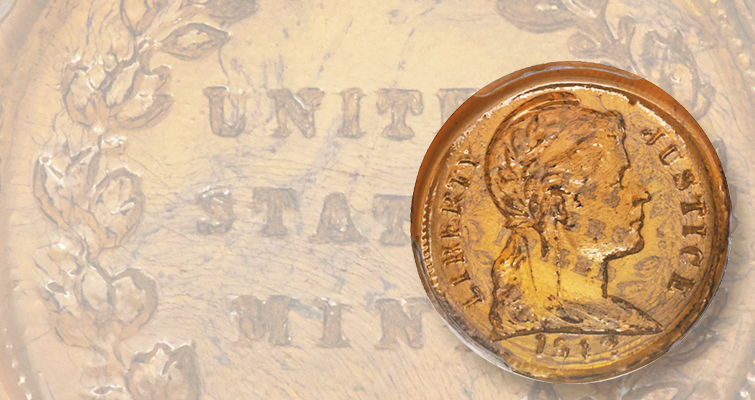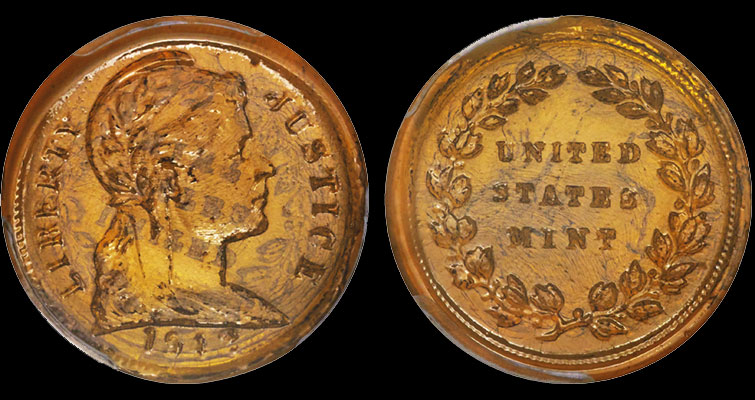Coin World | By Paul Gilkes, Coin World Senior Editor | December 16, 2016

(Original images courtesy of Heritage Auctions.)
Only known unbroken example in Heritage Platinum Night auction at FUN
The only known unbroken example of a 1942 experimental cent struck on a glass planchet is set to cross the auction block Jan. 5 in Fort Lauderdale, Fla.
Heritage Auctions is offering the piece during its Platinum Night session at the Florida United Numismatists convention in the Greater Fort Lauderdale-Broward County Convention Center.
The piece is graded and encapsulated Proof 64 by Professional Coin Grading Service.
In 1942, the U.S. Mint directed extensive experiments seeking alternative coinage compositions that would conserve copper, tin and nickel for critical wartime needs.

(Images courtesy of Heritage Auctions.)
Experimental cents were produced in a variety of compositions, including brass, zinc, lead, glass, hard rubber, plastic and Bakelite, among other substances.
The experimental piece’s obverse design is copied from a Columbian two-centavo coin and the reverse from a Washington medalet, Baker 155 (Medallic Portraits of Washington by W.S. Baker).
The glass piece being offered was produced by the Blue Ridge Glass Company in Kingsport, Tenn. Because Blue Ridge could not heat the glass and dies to very hot temperatures simultaneously, then allow the glass to cool after striking, the resulting pieces exhibit soft details and surface imperfections, according to the catalog.
No estimate is given for the cent.


